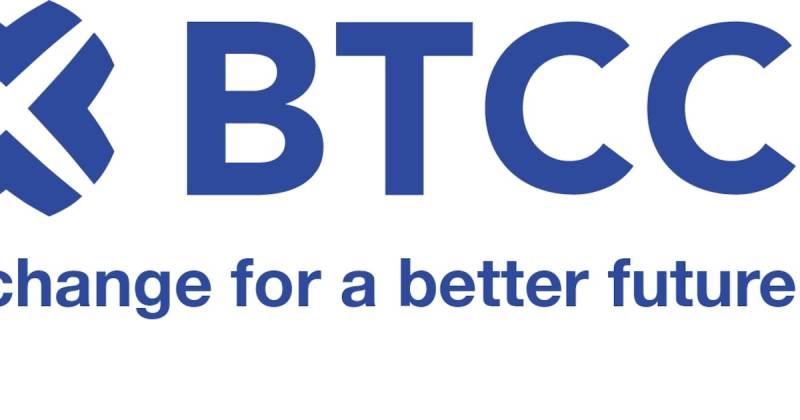 |
|
 |
|
 |
|
 |
|
 |
|
 |
|
 |
|
 |
|
 |
|
 |
|
 |
|
 |
|
 |
|
 |
|
 |
|
公共區塊鏈本質上呈現出透明度和隱私之間的悖論。該設計的基礎要求共享交易數據,這對用戶隱私構成了威脅。許多加密隱私工具都存在致命缺陷,破壞了去中心化。追求隱私,謹防這七宗罪。

Are Public Blockchains Inherently Antithetical to Privacy?
公共區塊鏈本質上與隱私是對立的嗎?
The foundational design of public blockchains has long grappled with the inherent tension between transparency and user privacy. The public ledger's very essence necessitates the sharing of transaction data with network participants, making it a breeding ground for surveillance, coercion, and unintended consequences.
公共區塊鏈的基礎設計長期以來一直在努力解決透明度和用戶隱私之間固有的緊張關係。公共分類帳的本質需要與網路參與者分享交易數據,這使其成為監視、脅迫和意外後果的溫床。
Seven Deadly Sins of Crypto Privacy Tools: A Cautionary Tale
加密隱私工具的七大罪:一個警世故事
In the quest for privacy solutions, numerous crypto protocols have fallen prey to fatal flaws that compromise user anonymity and undermine the very purpose of decentralization. Here are seven common pitfalls to be wary of:
在尋求隱私解決方案的過程中,許多加密協議都陷入了致命缺陷,這些缺陷損害了用戶的匿名性並破壞了去中心化的真正目的。以下是七個需要警惕的常見陷阱:
Sin 1: The Siren Song of Centralization
原罪 1:集權的海妖之歌
In the decentralized realm, centralization is a cardinal sin. It is far easier and cost-effective to maintain a ledger on a centralized database than to navigate the complexities of public blockchains. However, decentralization is the lifeblood of crypto's value proposition, ensuring resilience and eliminating the reliance on centralized institutions.
在去中心化領域,中心化是一大罪。在集中式資料庫上維護分類帳比處理公共區塊鏈的複雜性要容易得多,也更具成本效益。然而,去中心化是加密貨幣價值主張的命脈,確保彈性並消除對中心化機構的依賴。
Privacy protocols must resist the temptation of centralization, which grants developers privileged access to user data. Mechanisms like Viewing Keys should be employed to provide non-discriminatory, user-controlled transparency. Threshold multi-sigs, while well-intentioned, introduce unnecessary trust assumptions and vulnerabilities.
隱私協議必須抵制中心化的誘惑,中心化賦予開發人員存取使用者資料的特權。應採用查看密鑰等機制來提供非歧視性的、使用者控制的透明度。閾值多重簽名雖然是出於好意,但卻引入了不必要的信任假設和漏洞。
Sin 2: The Unquenchable Thirst for Logging
原罪 2:對伐木的不可抑制的渴望
Privacy tools should be designed with a laser focus on protecting user activity, particularly personally identifiable information. Protocols must resist the temptation to log data that could compromise anonymity, such as IP addresses and browsing history.
隱私工具的設計應著重於保護使用者活動,特別是個人識別資訊。協議必須抵制記錄可能損害匿名性的資料的誘惑,例如 IP 位址和瀏覽歷史記錄。
Sin 3: The Enigma of Encrypted State
原罪 3:加密狀態之謎
The allure of a fully encrypted state is understandable, but it comes at a significant cost. Eliminating public auditability undermines one of the fundamental security pillars of blockchains. Without transparency, verifying the integrity of dApps becomes impossible, leaving users vulnerable to exploits and malicious actors.
完全加密狀態的吸引力是可以理解的,但它的成本很高。消除公共審計會破壞區塊鏈的基本安全支柱之一。如果沒有透明度,就不可能驗證 dApp 的完整性,從而使用戶容易受到攻擊和惡意行為者的攻擊。
Sin 4: The Reliance on Gatekeepers
罪四:依賴看門人
Zero-knowledge-based encryption is a powerful tool, but its effectiveness can be compromised by dependencies on specific manufacturers. Relying on proprietary hardware or software introduces single points of failure and undermines the trustless nature of crypto.
基於零知識的加密是一種強大的工具,但其有效性可能會因對特定製造商的依賴而受到影響。依賴專有硬體或軟體會引入單點故障,並破壞加密技術的不可信性質。
Sin 5: The Quest for Privacy Purity
罪 5:追求隱私純潔
Privacy is a compelling narrative, but it should not be pursued at the expense of practicality. Building entirely new blockchains or rollups solely for privacy purposes is often an unsustainable endeavor. Instead, privacy solutions should be integrated into existing chains where users and financial activity are already concentrated.
隱私是一個令人信服的敘述,但不應以犧牲實用性為代價。僅僅出於隱私目的構建全新的區塊鏈或匯總通常是不可持續的努力。相反,隱私解決方案應該整合到用戶和金融活動已經集中的現有鏈條中。
Sin 6: The Burden of Builder Complexity
罪 6:建構器複雜性的負擔
Forcing developers to learn and use proprietary languages and ecosystems unnecessarily complicates the development process. Languages like Solidity and Vyper offer cross-chain portability, while Rust and WebAssembly chains introduce fragmentation and accessibility issues.
強迫開發人員學習和使用專有語言和生態系統不必要地使開發過程複雜化。像 Solidity 和 Vyper 這樣的語言提供了跨鏈可移植性,而 Rust 和 WebAssembly 鏈則引入了碎片和可訪問性問題。
Sin 7: The Perils of Immaturity
罪七:不成熟的危險
Privacy technology is not a trivial pursuit. It requires rigorous academic research, extensive audits, and thorough testing. The consequences of poorly implemented privacy measures can be severe, jeopardizing both user identities and financial assets.
隱私技術並不是一項微不足道的追求。它需要嚴格的學術研究、廣泛的審計和徹底的測試。隱私措施實施不當的後果可能很嚴重,危及使用者身分和金融資產。
Conclusion: The Path to Privacy on Public Blockchains
結論:公共區塊鏈的隱私之路
Building on-chain privacy systems is no easy feat, but it is essential to preserve the core principles of decentralization and auditability. By carefully addressing the common pitfalls outlined above, crypto protocols can empower users with privacy while maintaining the integrity and security of the blockchain ecosystem.
建立鏈上隱私系統並非易事,但保留去中心化和可審計性的核心原則至關重要。透過仔細解決上述常見陷阱,加密協議可以為用戶提供隱私保護,同時維護區塊鏈生態系統的完整性和安全性。
The Web3 Privacy Now initiative provides a valuable resource for assessing the privacy levels of various crypto tools. By embracing privacy-first solutions, we can safeguard our online identities and unlock the full potential of decentralized finance.
Web3 Privacy Now 計畫為評估各種加密工具的隱私等級提供了寶貴的資源。透過採用隱私優先的解決方案,我們可以保護我們的線上身分並釋放去中心化金融的全部潛力。
免責聲明:info@kdj.com
所提供的資訊並非交易建議。 kDJ.com對任何基於本文提供的資訊進行的投資不承擔任何責任。加密貨幣波動性較大,建議您充分研究後謹慎投資!
如果您認為本網站使用的內容侵犯了您的版權,請立即聯絡我們(info@kdj.com),我們將及時刪除。
-

-

-

-

-

- 6個即將到來的Kraken列表,這可能是加密貨幣的下一件大事
- 2025-04-09 05:00:13
- 每天出現數百種新的加密貨幣和令牌。許多人毫無價值,但有些可能只是加密貨幣中的下一個大事。
-

- COTI公佈新的以隱私為中心的區塊鏈重塑Web3交易
- 2025-04-09 05:00:13
- 隨著COTI的新層2網絡的推出,區塊鏈隱私的重大飛躍已經到來。
-

- Qubetics($ TICS)正在塑造區塊鏈互操作性的未來
- 2025-04-09 04:55:12
- 從目的看來,以目前的價格為0.0455美元的60萬美元投資將確保約13,186,813個令牌。
-

- 全球加密交易所BTCC通過上市10個趨勢山寨幣對擴展其現貨市場產品
- 2025-04-09 04:55:12
- 這一舉動加強了BTCC致力於為全球用戶多樣化的交易機會。
-

- 該提議需要什麼?
- 2025-04-09 04:50:12
- 根據Jiexhuang的說法,如果主要的全球經濟體在其戰略儲備中採用比特幣,則可能導致其價值穩定。這次輪班可能























































